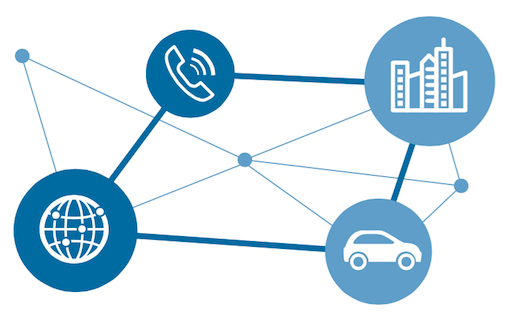
Read more of Prospect's "Data as infrastructure" report
Citizen data has been a high-value, closely-guarded sales asset for major companies for years, but for data-rich public sector organisations it has been an undervalued commodity until recently.
For a digital and technology focused Council like Wigan, in a modern world, the potential is being realised and we have resources focused on making the most of this data to shape innovative new models of service delivery with other public, private and community sector partners, to understand and manage demand and build richer pictures of our residents.
Our Wigan Deal, which is about building on the strengths and assets of our local communities, is about connecting residents to information about community opportunities—events, groups, volunteering. Our place-based approach to delivering services, is about breaking down barriers to sharing data with partners, to work together effectively, in a co-ordinated way to help residents take greater control over their lives.
Our risk stratification tools developed with health colleagues for example, helps us to better understand and focus resources, to meet the needs of those people who are at risk of being admitted to hospital.
We have developed our open data site so that we can share some of the local data we hold, with citizens, as we recognise that there are so many opportunities for new ideas, innovation and conversations to develop when this data is made available.
In terms of the future, recognising the growth in consumer technology, which is making our homes increasingly “smarter,” we have embraced this with our “people-powered technology” programmes, using this technology to deliver services and provide support to vulnerable residents. We can collect data about the health and social care needs of our residents whilst they are in their own homes, to provide them with tailored advice and guidance, inform assessments about their care, address issues of isolation, enabling them to access opportunities and play a greater role in their community and give them greater control over their health needs.
We are already using our data to better understand the changing demographics of our residents, so that we can work with planners to build smarter homes that will harness the power of technology, to help residents live richer lives as they age. We use data about population health and social issues for example, to inform planning decisions about licensing of premises. We have some innovative schemes with our housing tenants to help them use data to improve energy efficiency.
Our residents live increasingly digital lives and technology provides us with greater opportunities to engage residents in the design of these future homes, with opportunities to use technology like VR to enable them to experience “living” in these homes from plans and contribute to the design of future plans. We can use our data to build and redesign homes that ensure that our residents live in rich, diverse communities, to reduce the isolation that can occur when housing stock creates “ghettos” dictated by the availability of suitable housing.
"Recent high-profile cyber security incidents have highlighted the importance of ensuring that we capture data in a safe and secure way”Smart cities, with smart transport, use technology to reduce commuting and the environmental impact associated with this. We have redesigned our services to significantly improve our online presence and as a council have one in two of our residents signed up to our “My Account,” recognising that our residents want 24/7 service transactions and access to information from home or work. We have already introduced our own guided busway, to help people to commute to work and we recognise that over time the way that people work is changing, with more people working from home. We know that this is how a modern council operates and are encouraging our staff to work in a “smarter” way, using our own investments in technology infrastructure to enable this.
There are challenges around how we ensure that all of our citizens have access to high-speed broadband, which we need to work in partnership with private sector and central government partners to address.
Recent high-profile cyber security incidents have highlighted the importance of ensuring that we capture data from residents in a safe and secure way, but this is a collective global challenge in terms of the growth of technology, which is being overcome from a commercial perspective and should not be used as a reason not to embrace the opportunities.
Here at Wigan, we are excited by new technology and the pace at which technology is evolving. We know that we have to think innovatively about how we operate as a council and be agile in redesigning how we meet our obligations to our increasingly digitally “savvy” residents, who are benefiting from our digital upskilling programmes, because our smart city is already well on the way to becoming a reality.
On the 3rd of October, Prospect launched Data as Infrastructure. This special report grew out of a series of high-level roundtable meetings over the summer which brought together government, private businesses and the third sector to look at how data is already being used to improve people’s lives and how it has the potential to do so much more.
To find out more about how you can become involved in Prospect’s thought leadership programmes, please contact saskia.abdoh@prospect-magazine.co.uk.
You can also download the whole Data as Infrastructure supplement as a fully designed PDF document. To do so, simply enter your email below. You’ll receive your copy completely free—within minutes.
[prosform fields="email,forename,surname" signupcode="Data" countrycode="GB" redirect="data-as-infrastructure-is-yours"]
When you sign up for this free report, you will also join our free Prospect newsletter.
Prospect takes your privacy seriously. We promise never to rent or sell your e-mail address to any third party. You can unsubscribe from the Prospect newsletter at any time













